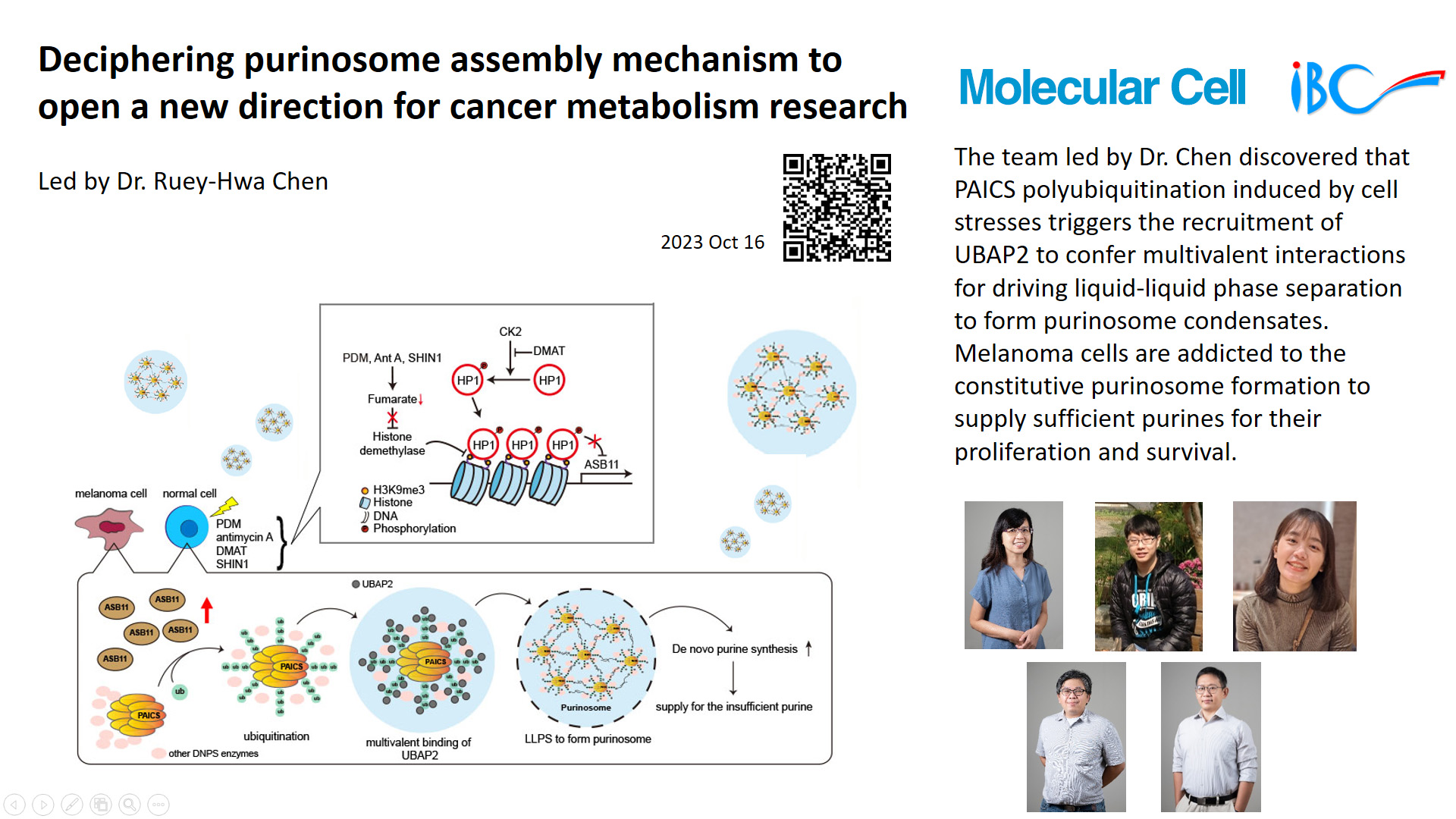
 中央研究院 生物化學研究所
中央研究院 生物化學研究所
Purinosomes serve as metabolons to enhance de novo purine synthesis (DNPS) efficiency through compartmentalizing DNPS enzymes during stressed conditions. However, the mechanism underpinning purinosome assembly and its pathophysiological functions remains elusive. Here, we show that K6-polyubiquitination of the DNPS enzyme phosphoribosylaminoimidazole carboxylase and phosphoribosylaminoimidazolesuccinocarboxamide synthetase (PAICS) by cullin-5/ankyrin repeat and SOCS box containing 11 (Cul5/ASB11)-based ubiquitin ligase plays a driving role in purinosome assembly. Upon several purinosome-inducing cues, ASB11 is upregulated by relieving the H3K9me3/HP1α-mediated transcriptional silencing, thus stimulating PAICS polyubiquitination. The polyubiquitinated PAICS recruits ubiquitin-associated protein 2 (UBAP2), a ubiquitin-binding protein with multiple stretches of intrinsically disordered regions, thereby inducing phase separation to trigger purinosome assembly for enhancing DNPS pathway flux. In human melanoma, ASB11 is highly expressed to facilitate a constitutive purinosome formation to which melanoma cells are addicted for supporting their proliferation, viability, and tumorigenesis in a xenograft model. Our study identifies a driving mechanism for purinosome assembly in response to cellular stresses and uncovers the impact of purinosome formation on human malignancies.
